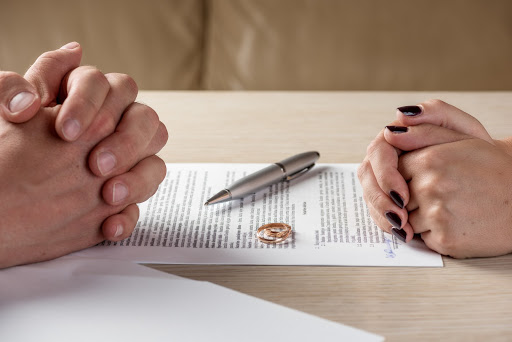How To Keep My Spouse From Selling Property Before We Divorce In Florida
Courts of Law in Florida often make adjustments to the 50/50 standard of sharing marital property in favor of doing equity and maintaining fairness after a divorce. Florida is a state that prefers the equitable distribution of marital property. This means that Florida divides property equitably and may sometimes lean away from the traditional 50-50 split in some cases.
When it comes to sharing the property, courts of Law in Florida consider the following factors:
- Economic conditions
- Duration the marriage lasted
- Disruption of career or education
- Need to retain a marital home as a residence for children
The contribution of a person to the marriage is seen in the light of things like effort towards the care and education of children and services provided as a homemaker.
The economic circumstances of the parties in court are viewed in light of the careers performed by each of the parties. Unintentional loss of income or employment may also play a role in determining how the property is shared.
The duration of marriage also goes a long way to affect how the property is divided. In cases involving marriages that lasted long, the division is fairly complex, and vice versa.
Disruption of the usual careers or educational pursuits of either party is also put into consideration. One incurring the detriment may swing the advantage in their favor.
In some circumstances, a divorced couple may desire to retain an asset or an interest in the business, firm, or professional practice from any legal claim or meddling by the other.
Usually, retaining a house for any dependent child in the marriage is in the best interest of the minor, and it is legally allowed for them to maintain their interests in the home till the child is old enough to move on independently. Usually, this is as soon as they attain the age of majority.
Options When Selling a House During Divorce in Florida
More often than not, many divorcing couples prefer to sell the marital home and split the profits. There are many options, however, as to how the house is treated after the divorce is settled. These include:-
- Buy out the other party
- Co-own the property
- Sell the property
- Share the assets.
Buying Out the Other Party
Typically, this happens when one party is willing to pay the other party half the market price and actually does. Essentially, this makes the buyer the sole owner of the house in question. He or she may now live freely without claim or interference from the other party.
Buyouts make sense if some family members want to continue living in the neighborhood. Sometimes, due to the location of amenities like schools, hospitals, and recreational centers.
Co-Owning the House
When this is the case, the individuals need to agree on how the payments will be divided, who makes the payments, and the way the home will be used.
Sometimes, the persons have no choice but to co-own the house when it cannot be sold for some reason. In this situation, most people prefer to rent it out and collect payments regularly.
Selling the Property
Typically, selling the house after the divorce is the most straight forward option. Needless to say, this path is traveled by many. As soon as the house is sold, the spouses proceed to share the profits as they deem fit. The money may be used to buy a new house, pay the attorney, clear debts, or whatever an individual opts to do with it.
This is a situation where one spouse gets to keep the house, while the other can keep other marital property that is of a similar value to the house. For instance, one takes the house while the other takes stock, shares, cars, and even land.



